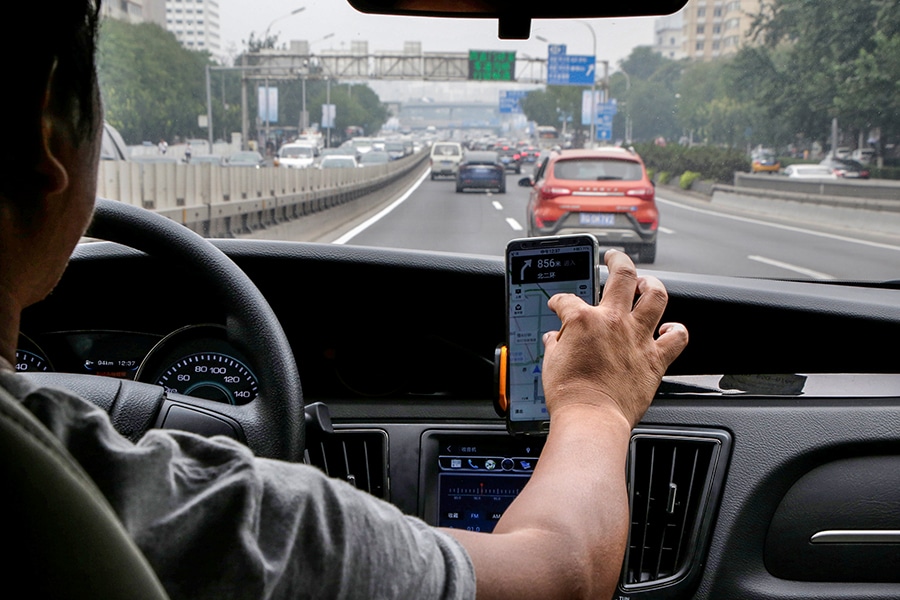
Didi, the Chinese ride-hailing giant, makes its debut on Wall Street
In April, Didi was one of nearly three dozen Chinese internet companies that were hauled before regulators and ordered to ensure their compliance with anti-monopoly rules and to "put the nation's interests first"
 A Didi Chuxing driver rides his electric car on the way for service in Beijing, China. Image: Reuters/Jason Lee
A Didi Chuxing driver rides his electric car on the way for service in Beijing, China. Image: Reuters/Jason Lee
Didi, the leading Chinese ride-hailing platform, made its Wall Street debut Wednesday, capping a year in which ride-booking and travel companies have struggled amid intermittent pandemic lockdowns.
Didi began trading at $16.82 a share on the New York Stock Exchange, up 20% from a $14-a-share offering price. But investor interest cooled throughout the day, and Didi closed at $14.20, pegging the company’s value at more than $69 billion.
The company made its debut, trading under the ticker DIDI, as Wall Street continues to embrace fast-growing tech companies regardless of their ability to turn a profit. Ride-hailing companies like Uber and Lyft, in particular, have proved to be profligate money losers, often burning through billions in cash each year.
Didi is no exception. It lost $1.6 billion last year, although it reported a profit of $30 million in the first quarter of this year. Revenues declined 8% to $21.63 billion last year because of the pandemic, the company said in a regulatory filing.
Despite its dominance in China and other countries, Didi could face unusual scrutiny from investors because of continued tensions between the United States and China. The U.S. government has placed some Chinese tech companies on lists that restrict their ability to do business with the United States or its trade partners.
©2019 New York Times News Service







